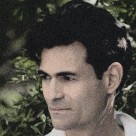Throughout time courts have ruled against any form of intrusion into American citizen’s private lives . These federal laws , for instance the FISA law , seek to discourage fishing undertakings, aimless assumptions and unconditional approaches to collect information among the society. As a matter of fact, it can be illegally retrieved evidence set off by warrantless searches and investigations are presumed unacceptable in courts. This is because the law prevents the State to gain from its infringement. Certainly, an infraction of such rights of a single person is already one too many.
http://www.gpo.gov/fdsys/pkg/STATUTE-92/pdf/STATUTE-92-Pg1783.pdf
In the PBS special Spying on the Home Front, it exposes just how much the government has no time for legally identified processes of investigation and surveillance to allow uncommon entrance to personal communication encompassed by innocent American citizens. The National Security Agency (NSA) has been explicitly constructed to deflect alarming communication with the ambition of catching the terrorists, even before the agency plans to take definite actions. Therefore, the agency at first was subsequent to the principle that investigations need to prevent private correspondences. Be that as it may, in the last few decades and more so after the 9 /11 terror attacks, the NSA, along with the Federal Bureau of Investigation (FBI) and the Central Intelligence Agency (CIA) used their skills and devices to spy on the American people.
https://www.eff.org/nsa-spying/timeline
The only thing that can be said about laws that give the government so much power and the citizens so little is that the Patriot Act gave the government permission to set up the framework of a police state. The Patriot Act, established a little over a month after 9/11, reduces civil liberties that were protected by the Constitution. The NSA can even access call records in the cell phone company Verizon, it was made so that the customers didn’t even know that they were even being spied on. Except that Verizon is not the only the information has been put into what is called “metadata”, making so that there is no need for a warrant. It also gains access through internet sites such as Google, Apple, and Facebook through an Internet-search program known as PRISM; without gaining permission not only through the people but also the companies. John Earnest a deputy of the press security states that “Collecting millions of phone records of ordinary citizens allows law enforcement to discover whether known or suspected terrorists have been in contact with other possible terrorists.”
http://usatoday30.usatoday.com/news/washington/2006-05-10-nsa_x.htm
In the summer of 2013, the spying agency claimed they foiled a little over fifty terrorist plots. But how much of that was due to looking through citizen call and internet records? A new analysis of terrorism charges in the US found that the NSA’s dragnet domestic surveillance “had no discernible impact” on preventing terrorist acts. Instead, the majority of threats over the last decade were detected by regular old intelligence and law enforcement methods—tips, informants, CIA and FBI ops, routine law enforcement.
http://securitydata.newamerica.net/nsa/analysis
http://motherboard.vice.com/blog/youll-never-guess-how-many-terrorist-plots-the-nsas-domestic-spy-program-has-foiled
I do understand that the point of the program is to protect the U.S. from terrorist attacks but by invading the American people’s personal records and not informing us of such actions? That does not seem beneficial to any innocent citizens.

